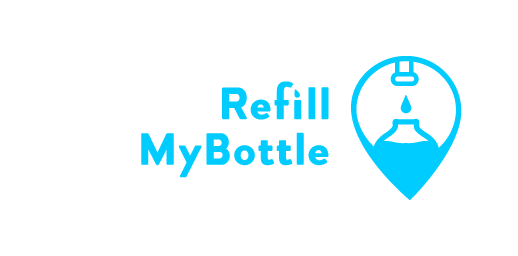Plastic has become one of the most widely used materials in the world. Plastic containers and packaging are the most convenient and affordable choices for many. However, the world is starting to drown in it all. Plastic takes a long time to degrade, which makes plastic pollution one of our biggest environmental issues. People all around the globe are trying to find ways to reduce plastic use whenever possible. Most do it by replacing single-use plastic bottles with reusable ones.
If you’re thinking about doing the same but still need some convincing that a reusable bottle is the way to go, you’ve come to the right place. Here are 15 facts about plastic bottles that will convince you to ditch them forever:
1. Plastic Takes a Long Time to Decompose
After ending up in a landfill, a single plastic water bottle can take up to 1,000 years to decompose. Some types of plastic never fully disintegrate at all. As if that weren’t bad enough, while slowly going through the process of degradation, plastic actually aids carbon emission. Thus, it contributes to global warming and climate change. Swapping plastic bottles with reusable ones would make a substantial change.
2. Plastic is Harmful to Animals and Ourselves
As mentioned above, some plastic bottles never fully disappear from landfills. They leave behind small pieces and particles which animals mistake for food and eat. Then, humans consume said particles as well by eating animal meat. It is a harmful and unhealthy circle that could be broken by simple habit changes.
3. Producing Plastic Bottles is a Waste of Water
The making of plastic bottles requires a lot of water in every single stage of production. According to a Water Footprint Network study, manufacturers need around 91.8 billion m3 of water to produce 3.83 billion MT of plastic. That amount of water is equivalent to filling 693 billion bathtubs. Since water bottles are usually produced in areas that are in desperate need of clean water, this practice is not only expensive but also unethical.
4. Plastic Cannot Be Recycled
It is impossible to recycle plastic into anything other than more plastic. For this reason, we rarely recycle plastic and incinerate it instead. But incineration bears environmental risks of its own, so we cannot say that getting rid of plastic can be done without harming our ecosystem in some way.
5. Faucet Water is Purer Than Bottled Water
Many people believe that bottled water is purer and safer than faucet water. However, the faucet water is usually subjected to more safety checks than bottled water is. Furthermore, bottled water costs from $0.89 per gallon to $8.26 per gallon, while faucet water is thousands of times less expensive. Thus, a reusable bottle filled with faucet water is not only better for the environment but also for your budget.
6. Health Risks
Reusing single-use plastic bottles is something a lot of consumers do. However, doing so poses a lot of health risks as it provides a good breeding ground for different types of bacteria. The bacteria could lead to certain illnesses and cause a weak immune system.
7. Plastic Bottles Contain Toxins
Plastic bottles often harbor toxins that can harm you. One of the most common toxins found in all plastic bottles is bisphenol-A. However, there are many others. Buying a reusable water bottle will ensure you don’t come into contact with any of them.
8. Reusable Bottles Increase Your Water Intake
Research shows that having a reusable water bottle will help you drink more water throughout the day. A lot of people struggle with balancing their water intake and would appreciate any help with it. It will also improve your health.
9. More Self Expression
Reusable bottles come in many different designs and styles, and you can even come up with your own on many websites that sell them. Thus, you can make sure that your bottle reflects your identity.
10. Ditching Plastic Bottles is a Win for Aquatic Life
As a lot of plastic bottles end up in rivers and seas, they poison aquatic life. Switching to a more sustainable bottle choice will, therefore, be quite useful for all the fish and other organisms living in the water.
11. Easier Reduction of Waste and Cleaning
If more people used reusable bottles there would be less waste. By extension, cleaning up the already existing waste would be easier without the constant influx of new waste. Solving the problem of waste would then become a bit less demanding.
12. Reusable Bottles are More Durable
Plastic is not at all durable. Reusable bottles are made from different materials such as metal, glass, or bamboo and are thus much more durable and sustainable.
13. Reusable Bottles Can Be Made of Renewable Materials
Though reusable bottles are mostly made from glass or metal, some of them are made of materials such as bamboo. Bamboo is a plant, so it is a completely natural material. Growing it is great for the environment as it produces oxygen, and using it to produce water bottles is a new idea that’s quickly gaining popularity.
14. Reusable Bottles are a Good Long-Term Investment
Though they seem expensive at first, reusable bottles will save you a lot of money in the long run. You won’t have to buy water every time you’re out as you’ll carry your bottle.
15. Reusable Bottles are Versatile
Apart from water, these bottles can hold coffee, tea, juice, and any other liquid you want to take with you. Plastic cannot do the same as it is often too thin and low-quality.
IN CONCLUSION
Now that you’ve seen all the reasons that make reusable bottles better than plastic ones, don’t waste any more time. Get rid of all your plastic bottles (safely!) and invest in a reusable one. It will be an investment both you and the planet will be thankful for.
